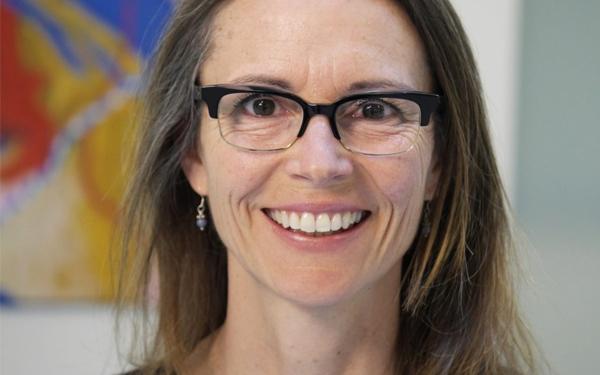
New Study Associates Intake of Dairy Milk with Greater Risk of Breast Cancer

New Study Associates Intake of Dairy Milk with Greater Risk of Breast Cancer
Updated: November 25 2024
Update Authors: Dr. Adrian Lau, Dr. Rowena Ridout, Dr. Laetitia Michou, Dr. Claudia Gagnon, Dr. Vithika Sivabalasundaram, Dr. Emma Billington, Dr. Zahra Bardai
“Dairy, soy, and risk of breast cancer: those confounded milks”
This title from a 2020 study suggests that women who drink as little as one cup (250 mL) of cow’s milk per day could be increasing their risk of developing breast cancer by up to 50%. This study is part of the Adventist Health Study, by Synnove Knutsen et al, from Loma Linda University and published in the International Journal of Epidemiology (1). The study evaluated associations between intakes of soy milk, other soy products, dairy milk and other dairy foods with risk of breast cancer.
This study followed nearly 53,000 Adventist women for 7.9 years focusing on the relative risk of a rare outcome. The authors concluded that as cow’s milk intake increased, regardless of fat level, so did the risk of breast cancer. No clear associations were found between consumption of soy products and breast cancer.
Weaknesses of this study are its observational design (cause and effect cannot be established) and possible residual confounding between dairy and unmeasured factors, despite extensive covariate adjustment (1). Diet was measured only once at study baseline leaving room for error and omissions. Whether these results can be applied to other populations is unknown and therefore difficult to draw conclusions. Adventist lifestyle may differ considerably from the general population as many follow a plant-based diet and exclude processed foods, alcohol and caffeine.
The authors do note that cow’s milk has many positive nutritional qualities and suggest more research is needed to understand if there is a link between dairy intake or other closely related unidentified factors and breast cancer risk. Until then, a balanced and a varied diet including sources of calcium, regular physical activity and avoiding smoking and excess alcohol make for a healthy lifestyle.
In addition to this study, there are many reviews and studies looking at the association of dairy and cancer risk in other organ sites. The pooled results from several large population-based epidemiological studies have found dairy consumption to be beneficial in reducing the risk of colorectal cancer (2). However, for prostate cancer, many studies do suggest a higher risk of prostate cancer, with greater amounts of dairy intake (3).
Further studies looking at breast cancer risk from dairy show mixed results, with some studies showing a protective effect of dairy, and some showing possible harms from dairy. One systematic review and meta-analysis found no association between breast cancer and dairy intake < 450 g per day, and also found a protective effect of cheese on breast cancer risk (4). However, an intake >450 g per day did correlate to a higher risk of breast cancer by approximately 30%. Another study which pooled the results of 21 cohort studies (5) found a protective effect of yogurt, ricotta cheese and cottage cheese against the risk of estrogen-receptor positive breast cancer.
Many of the studies have similar limitations that often many different types of foods and beverages are grouped together as one larger category labelled as dairy. For example, this group can include cow’s milk, as well as goat’s milk or sheep milk and other dairy-containing foods such as ice cream, butter, cheese, yogurt, kefir, etc. Some questions for future research include whether differences in cancer risk exist between cultured versus uncultured dairy, organic versus conventional dairy, the addition of sugar, preservatives, colorants and whether fat content has an effect.
- Fraser GE, Jaceldo-Siegl K, Orlich M, Mashchak A, Sirirat R, Knutsen S. Dairy, soy, and risk of breast cancer: those confounded milks. Int J Epidemiol. 2020;49(5):1526-1537. doi:10.1093/ije/dyaa007
- Barrubés L, Babio N, Becerra-Tomás N, Rosique-Esteban N, Salas-Salvadó J. Association Between Dairy Product Consumption and Colorectal Cancer Risk in Adults: A Systematic Review and Meta-Analysis of Epidemiologic Studies [published correction appears in Adv Nutr. 2020 Jul 1;11(4):1055-1057. doi: 10.1093/advances/nmaa071]. Adv Nutr. 2019;10(suppl_2):S190-S211. doi:10.1093/advances/nmy114
- López-Plaza B, Bermejo LM, Santurino C, Cavero-Redondo I, Álvarez-Bueno C, Gómez-Candela C. Milk and Dairy Product Consumption and Prostate Cancer Risk and Mortality: An Overview of Systematic Reviews and Meta-analyses. Adv Nutr. 2019;10(suppl_2):S212-S223. doi:10.1093/advances/nmz014
- Kazemi A, Barati-Boldaji R, Soltani S, et al. Intake of Various Food Groups and Risk of Breast Cancer: A Systematic Review and Dose-Response Meta-Analysis of Prospective Studies. Adv Nutr. 2021;12(3):809-849. doi:10.1093/advances/nmaa147
- Wu Y, Huang R, Wang M, et al. Dairy foods, calcium, and risk of breast cancer overall and for subtypes defined by estrogen receptor status: a pooled analysis of 21 cohort studies. Am J Clin Nutr. 2021;114(2):450-461. doi:10.1093/ajcn/nqab097
Scientific Advisory Council
Osteoporosis Canada’s rapid response team, made up of members of the Scientific Advisory Council, creates position statements as news breaks regarding osteoporosis. The position statements are used to inform both the healthcare professional and the patient. The Scientific Advisory Council (SAC) is made up of experts in Osteoporosis and bone metabolism and is a volunteer membership.

